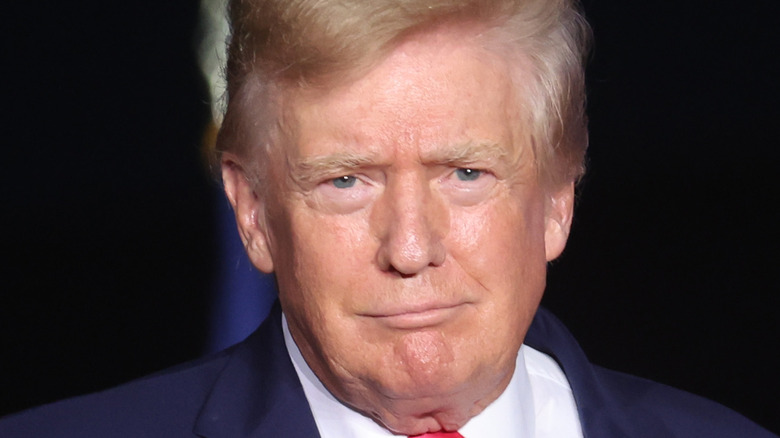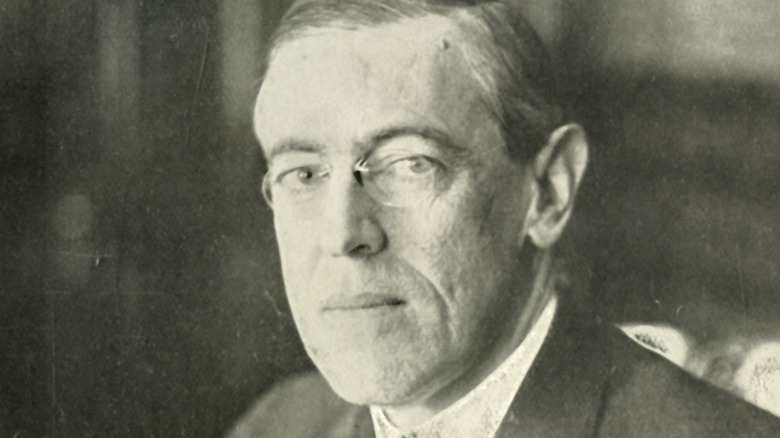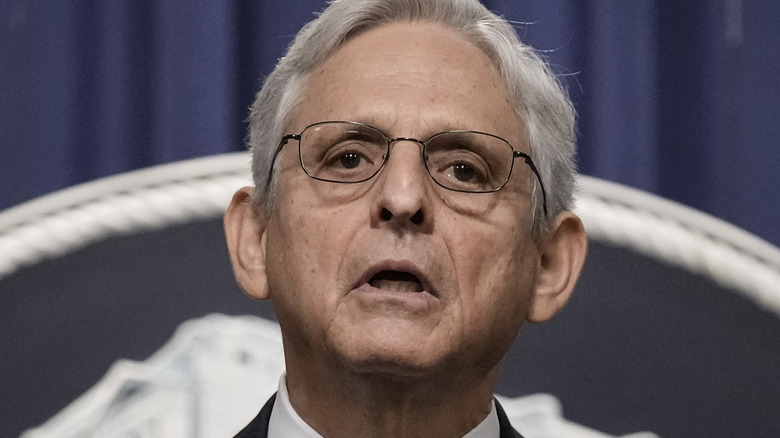What You Should Know About The Espionage Act
In mid-August 2022, the Mar-a-Lago, Florida, residence of former President Donald Trump was searched by the FBI, according to The New York Times. With the approval of U.S. Attorney General Merrick Garland, the search was conducted to recover classified documents from Trump's time as president, which he allegedly kept in his possession. Among other potential charges, Trump is reportedly under investigation for alleged obstruction of justice and Espionage Act violations, according to details revealed in the search warrant, according to Politico.
Before those search warrant details came to light, several political observers speculated that alleged Espionage Act violations could be at play, such as lawyer and conservative political pundit, George Conway, husband of former Trump advisor Kellyanne Conway (via Newsweek). Here's what you need to know about the history of the controversial law that was passed by the U.S. Congress shortly after the U.S. entered World War I (per History).
The Espionage Act made it illegal to support enemies of the U.S. or interfere in the war effort
The passage of the Espionage Act in 1917 and the Sedition Act one year later was motivated by America's entrance into World War I. Both were supported by then-President Woodrow Wilson (pictured above) and his attorney general, A. Mitchell Palmer, according to History. After an initial pledge to remain neutral, the call to enter the war was supported by many but not all Americans, and a sizable anti-war movement cropped up after the decision was made to send American troops into combat (via Constitution Center).
At that time, there was also growing concern over socialist influence in American society — a concern that would evolve into the "Red Scare." The Espionage Act was passed in no small part to tamp down that movement. The Espionage Act made it illegal for any U.S. citizen to interfere in the U.S. military's execution of the war effort, or to take actions that might aid its enemies. Anyone convicted of doing so was subject to thousands of dollars in fines and a lengthy prison sentence. The more severe 1918 Sedition Act also banned criticizing the U.S. flag, the Constitution, or the armed forces, among other violations, as History goes on to note.
Under the Espionage Act, socialist leader Eugene V. Debs was arrested
Among the earliest, most notable arrests and convictions made under the Espionage Act came in 1918 when Eugene V. Debs (pictured above), the four-time Socialist Party candidate for U.S. president, was arrested after delivering an address in Canton, Ohio, based on 1918 reporting from The New York Times. The espionage and sedition acts were topics of Debs' address. Debs, an outspoken pacifist, called the laws a violation of the First Amendment right to free speech.
The subsequent Debs conviction was appealed to the Supreme Court but was ultimately upheld. Though the harsher Sedition Act was repealed in 1921, large portions of the Espionage Act remain in effect to this day, per The First Amendment Encyclopedia website from Middle Tennessee State University. Another example from history when the Espionage Act was put into effect came in 1951 when Ethel and Julius Rosenberg were tried, convicted, and later executed for providing nuclear secrets to the Soviet Union, as History notes.
Trump could be the first president in history charged under the Espionage Act
The most recent high-profile examples of charges brought under the Espionage Act include former CIA analyst Edward Snowden and Wikileaks founder Julian Assange, as The First Amendment Encyclopedia website goes on to explain. If charges are in fact brought against former president Donald Trump for violations of the Espionage Act, he would be the first former president in history to be investigated and potentially convicted under the 1917 law, according to Newsweek. The nature of the documentation Trump allegedly kept pertained to nuclear weapons.
U.S. Attorney General Merrick Garland (pictured above) said the decision to issue the warrant, signed in early August 2022 by federal magistrate judge Bruce Reinhart, came after Trump returned some documents to the National Archives and to the FBI, but there was cause to believe he'd kept some of the most classified documentation for himself, as Politico reports. Trump claims he has fully cooperated with all requests in the matter and called the allegations of nuclear documentation at Mar-a-Lago "a hoax" (via Newsweek).



